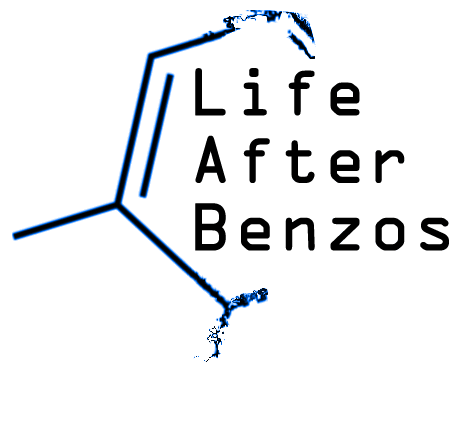Words like chronic, permanent and irreversible are terrifying in a medical context. It’s the last thing you want to hear when talking about your brain.
Sadly, many people are under the impression that they have suffered permanent brain damage after going through benzodiazepine use and withdrawal. I was one of these people.
What can I say? When you are six months into benzo withdrawal and you have not experienced any significant improvements, it’s difficult to see how your brain has not been damaged.
After a year of being off benzos, I am now convinced the damage was not permanent. But I am just one person and my use and withdrawal is likely different from yours. What does the science say about all of this?
Studies on Benzodiazepine Use and Brain Damage
Despite being so widely prescribed, there have not been many studies on the effects of benzodiazepines on brain structure over time. It is maddening to think about all the people that are navigating the dark side of benzos with little support from the psychiatric profession and simultaneously a dearth of scientific studies.
In the 1980’s, Professor Malcom Lader conducted several studies looking at brain scans amongst long-term benzodiazepine users. You can have a look at the first study here. In each study, there were results that were occasionally suggestive of a link between benzodiazepine use and structural changes in the brain, but nothing remotely conclusive.
The majority of patients showed no changes in their brain scans. Several other studies were conducted later with similar results. But these studies just looked at the structure of the brain itself. While there was not any “brain atrophy” in most patients, there still could be functional changes to the brain. Could these be permanent?
In a supplement to the Ashton Manual, Heather Ashton writes about the functional changes to the brain resulting from down-regulated GABA receptors.
One mechanism which might be involved in long-term (and possibly permanent) effects of benzodiazepines is an alteration in the activity of benzodiazepine receptors in brain GABA neurones. These receptors down-regulate (become fewer) as tolerance to benzodiazepines develop with chronic use. Such down-regulation is a homeostatic response of the body to the constant presence of the drugs. Since benzodiazepines themselves enhance the actions of GABA, extra benzodiazepine receptors are no longer needed, so many are, in effect, discarded. These down-regulated receptors are absorbed into neurones where, over time, they undergo various changes including alterations in gene expression. When these receptors are slowly reinstated after drug withdrawal, they may return in a slightly altered form. They may not be quite so efficient as before in increasing the actions of GABA, the natural ‘calming’ neurotransmitter. As a result, the brain may be generally less sensitive to GABA and the individual is left with heightened central nervous system excitability and increased sensitivity to stress. Molecular biologists point out that changes in gene expression can be very slow, or even unable, to reverse.**
Looking at Anecdotal Evidence
While these brain changes are harder to measure with brain imaging tools, we can also look at anecdotal evidence. No one individual experience can be indicative of permanent functional changes in the brain. But the thousands of benzo users who have written about their experience online can give us a clearer picture.
There is indeed considerable online testimony talking about permanent functional changes to the brain. Yes, this is terrifying. However, when you dig deeper what you find is that an overwhelming number of benzo users recover, but the recovery timelines are disparate and often longer than you would think conceivably possible. Some people report feeling like their brains are “back to normal” after six months while it may be years for others. Yes, years!
The recovery is also rarely linear. It is up and down with plenty of setbacks along the way. There are many people who still have symptoms years later even though they acknowledge fundamental improvements in their lives.
They may acknowledge what appears to be a permanent change in their brains, but they may also simultaneously report remarkable improvements that they thought were not possible. For more on this, I strongly recommend reading Dr. Christy Huff’s benzo journey here.
The Benzodiazepine Information Coalition recently conducted an online survey based study about possible permanent functional brain changes. I recommend checking it out.
Time Off From Benzos Will Heal the Brain
By and large, it is clear that the brain heals – even if if not wholly and categorically – regardless of whether the person was taking klonopin for two years or xanax for ten. Our physical bodies are remarkably resilient and the brain is no exception. In my case, it took nine months before I could say that I truly felt like my brain had healed. Now nearly a year out, I feel like I’ve improved beyond my baseline.
When I was in the thick of acute and post-acute withdrawal symptoms you would not have been able to convince me that I didn’t have permanent brain damage. It was a dark time and I honestly thought there was no way out. There is an expression, “time heals all wounds.” It seems that time off from benzos can indeed heal our brains.
**One thing that Heather Ashton is careful to point out is that there are some people who might already have fewer GABA receptors before they start taking benzos. This could explain why they were already dealing with something like generalized anxiety disorder or why they were originally prescribed benzos in the first place. It is unclear why someone would have fewer GABA receptors, but genetics are likely the main factor.

0 Comments